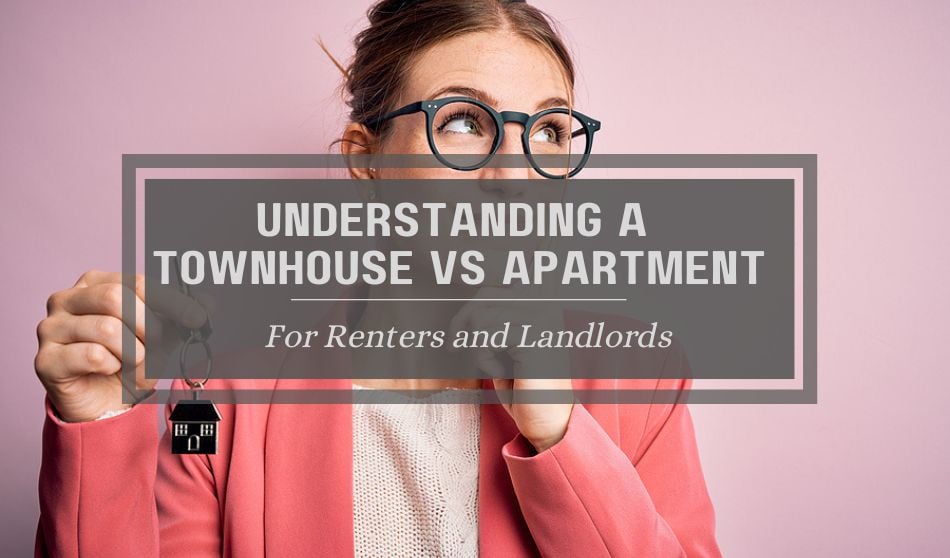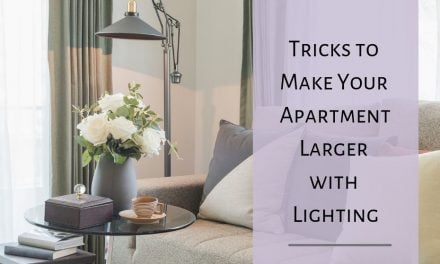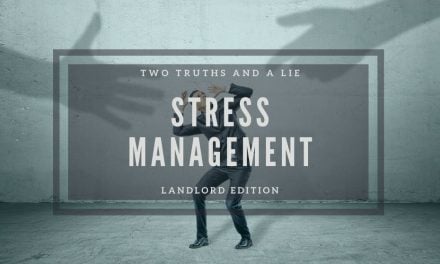
Choosing between a townhouse vs apartment as a landlord or renter requires you to understand their distinct advantages and drawbacks. Explore key aspects to help both renters and landlords make informed decisions when looking for a rental.
Key Takeaways:
- What is a townhouse: Multi-floor homes with individual entryways, that share 1-2 walls with connected properties. These are generally governed by HOAs.
- What is an apartment: Units within larger buildings with shared common areas. These are generally managed by property management companies.
- Dive into lifestyle benefits and amenities when considering a townhouse vs apartment benefits for renters
- Consider investment costs, financing options, and potential returns when looking at a townhouse vs apartment for landlords and real estate investors.
When deciding between a townhouse vs apartment, it’s important to remember that all rental types have their pros and cons. Whether you are a landlord hoping to invest in a rental property, or you are a renter seeking the best rental option for your needs, doing your research is essential. Understanding the differences between townhouses and apartments is key to making the best decision based on your ideal living situation or financial goals.
What is a townhouse?
A townhouse, as the name suggests, is typically located in town or residential area. Also called referred to as a row house, a townhouse is usually a single-family house of two or three stories that is often connected to a similarly constructed house by a common sidewall. Whether townhouses are available to rent or they are privately owned, most are governed by an HOA designed to keep the properties looking uniform and manage any shared community amenities.
Learn more: Renter’s Guide to Understanding HOAs
What is an apartment?
An apartment is a dwelling unit within a larger residential building made up of other apartment units and common areas within the same walls. While apartment units and apartment buildings can vary in size, amenities, and individual unit features, most apartment buildings are smaller than townhouses. Apartment complexes are generally managed by a property management company.
Townhouse vs. Apartment:
While both a townhouse and apartment can be owned by an investment company or an individual and rented out, apartments are more commonly rental units. Many townhouses are single-family homes owned by its occupant; while an owner may rent their townhouse out, the renter will likely be subject to both the rules outlined in the lease agreement and be required to adhere to HOA guidelines.
Townhouse vs Apartment Benefits for Renters:
Townhouses and apartments alike can have great benefits for renters. While townhouses and apartments have a general definition and layout connotations, specific amenities, unit layouts and sizes, are all going to be dependent on your areas offerings.
As a renter, be sure that you understand what is offered and available before committing to any particular property. Whether this means viewing it in person, or viewing the unit through a virtual tour, remember that just because a unit is referred to as a townhouse or an apartment doesn’t mean that it will look a specific way or feature any specific amenities. With that in mind, there are some general guidelines on what features you may see in a townhouse vs an apartment, and these can help you decide the best rental for your needs and comfort.
Townhouses are often multilevel with a living area and kitchen on the first floor and bedrooms on the second floor. Townhouses are generally stand-alone dwellings or are connected to another townhouse via a wall on one or both sides; they can also feature yards and a connected garage. This layout can have some specific benefits over a unit within an apartment complex, but may come at the cost of amenities or residential community building.
Benefits of a Townhouse vs. Apartment:
- Townhouses have individual entryways
- Townhouses often feature yard space
- A townhouse is standalone meaning no upstairs neighbors to make noise
- Townhouses may have a connected garage
- A townhouse means fewer immediate neighbors can feel more private vs apartments
- The townhouse HOA governing ensures general outdoor maintenance compliance
- A townhouse may still feature community amenities like shared gyms, lounge, or pool
Downsides of a Townhouse vs. Apartment:
- Potentially less community or resident events at a townhouse
- A townhouse may offer fewer amenities than an apartment community
- A townhouse may require more exterior and yard upkeep
- Townhouse HOAs may be difficult to navigate as a renter if you are unfamiliar
- Townhouse HOAs can mean additional fees
- Townhouse HOAs can mean specific upkeep requirements
- A townhouse may be pricer than an apartment unit with similar amenities
Townhouse vs Apartment Benefits for Landlords:
Investing in townhouses or apartments can help meet your financial goals as a landlord if you are savvy. However, like any deal in real estate, there are pros and cons to each option, and the individual deal will have a far greater impact than the general benefits of a specific type of property. That said, a savvy landlord needs to understand their goals and the types of properties available before growing a portfolio.
Learn more: Which Type of Rental Property Suits You?
Investing in a townhouse vs an apartment is no different on this front. Keep in mind that while there are some general benefits and downsides the nature of the deal will play the biggest impact when it comes to ROI. In general, landlords investing in an apartment will be purchasing the property as a whole rather than an individual unit. This means there is a lot of potential for revenue, but it comes at the expense of requiring a lot more upfront investment. If you are a new landlord trying to get into the market, a townhouse can be easily purchased independently and rented out. Remember that you need to be sure that the HOA community guidelines will not conflict with investment goals and that there are no restrictions to renting out the home after purchase.
Learn more: 9 Things to Know About Investing in a Property in an HOA Community
Benefits of a Townhouse vs. Apartment:
- Townhouses may mean more financing options for new landlords (FHA financing is available)
- Potential for House Hacking
- Townhouses are generally cheper to invest in than apartment complexes or even traditional single-family homes
- Townhouses allow landlords to offer amenities like a gym or pool while the HOA takes care of upkeep.
Downsides of a Townhouse vs. Apartment:
- Townhouse HOAs require fees
- Townhouse HOA guidelines can restrict upgrades or property choices
- A townhouse may mean less community-building or resident event options vs apartment complexes
- Townhouses are generally in suburban areas; landlords who seek to attract renters in the city center will likely want to invest in an apartment complex.
- Townhouses may offer fewer amenities than what landlords can offer in an apartment setting.
Final Thoughts:
Ultimately, both townhouses and apartments present viable options for landlords and renters alike, each with its unique benefits and potential pitfalls. While the specific properties in question will be a key player when calculating the pros and cons of your options, there are a few takeaways that can help you make an informed decision.
For renters, it’s important to prioritize your lifestyle preferences and amenity needs when looking at your potential new home. Landlords must balance the initial investment with potential returns and the specific demands of the property type’s management needs. For landlords and renters alike, checking your market’s availability and doing your research will help ensure make the best choice possible.






Informative comparison between townhouses and apartments! Your detailed breakdown is incredibly helpful for both renters and landlords. Thanks for sharing this valuable insight!
Thank you! Glad you found it informative!